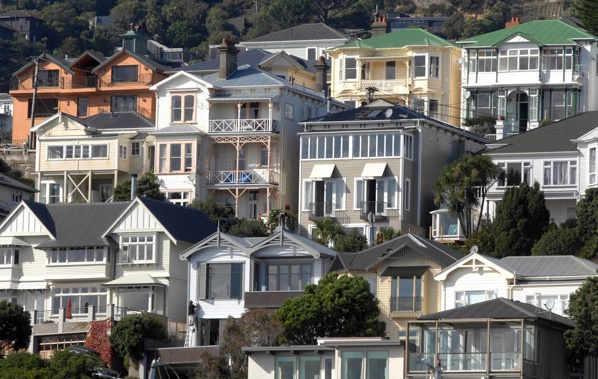
The Government has announced an extension will be granted for state landlord Kāinga Ora and private landlords in meeting their Healthy Homes deadlines.
The current deadlines of July next year for Kāinga Ora and July 2024 for the private sector will be each pushed out for another year in light of extra building pressures due to Covid-19.
The announcement came alongside two other measures for the housing sector, including new regulations for property managers and proposals to manage methamphetamine contamination.
The latter has been an issue stemming back to the previous National Government, when hundreds of tenants were unnecessarily evicted from public housing.
Kāinga Ora and registered community housing providers originally had until July 1 next year to ensure their 65,000 public homes covered by the standards met the requirements, including minimum levels of heating, insulation and ventilation.
The private sector had been required to meet the standards within 90 days of any new or renewed tenancy from July last year. This excluded those on long-term tenancies or properties meeting certain conditions.
All rentals must meet the standards by July 1, 2024.
The extensions were to account for disruptions due to Covid-19 and supply-chain issues, which Kāinga Ora says set back its renovation programme by six months.
Legislation would be introduced in the House today and passed under urgency before the end of the Parliamentary year.
“We recognise the impact that Covid-19 has had on getting this work done because of global supply chain and delivery challenges, including limited workforce challenges,” Housing Minister Dr Megan Woods said.
- Government considering Healthy Homes extension for all landlords
- Property Investors organisation on Govt confirming extension to meet Healthy Homes standards
/cloudfront-ap-southeast-2.images.arcpublishing.com/nzme/MZ25PIGFIRBDTEZQNRG3FRJZHM.jpg)
The standards included minimum levels of heating, insulation and ventilation. Photo / NZME
“It makes sense to be pragmatic as most landlords are genuinely trying to comply with their obligations but are at risk of breaching them because of issues outside of their control.”
The change meant private landlords had one more year to comply, so all private rentals must comply by July 1, 2025, instead of July 1, 2024. The timeframe for compliance for a new or renewed tenancy shifts from 90 days to 120 days.
For Kāinga Ora and Community Housing Providers, the timeframe for compliance shifts from July 1, 2023, to a new date of July 1, 2024.
Woods said their monitoring showed 85 per cent of private rentals had met, or had action underway to meet the standards and 84 per cent of Kāinga Ora homes either met the standards or there was work in progress to meet them.
Kāinga Ora had been ramping up its rennovations.
In July last year, just one in five met the standards. In July this year, it was up to just over 50 per cent.
The delivery rate had increased from 180 homes a week in June last year to 600 homes a week in October 2022.
However, even at that high rate of delivery, the figures indicated Kāinga Ora would miss its target by several thousand properties. Woods said it was on track to hit 95 per cent.
Kāinga Ora estimated 950,000 hours of work would be required to meet the standards, but Covid restrictions meant they lost about 240,000 of those hours over the past two years, or six months’ work.
Alongside the extension, Woods announced there would be public consultation to determine maximum acceptable levels of methamphetamine within homes, as well as at what level homes needed to be decontaminated to and when tenancies could be terminated due to high residue levels.
A 2018 report by Sir Peter Gluckman, then the Prime Minister’s chief science adviser, recommended a contamination level 10 times higher than that in the existing national standard should be adopted.
The national standard held that properties with a level of more than 1.5 micrograms per square metre were contaminated, whether it came from methamphetamine being smoked or manufactured. This low level had seen hundreds of households evicted, despite poor scientific and health evidence.
Gluckman’s report recommended that where meth had been consumed, contamination would have to hit 15 micrograms per square metre before decontamination was required.
/cloudfront-ap-southeast-2.images.arcpublishing.com/nzme/ZV7JL4OSFHRY4ZY6VBVO4MWHJY.jpg)
A 2018 report by Sir Peter Gluckman, then the Prime Minister’s chief science adviser, recommended a meth contamination level 10 times higher than that in the existing national standard should be adopted. Photo / Mike Scott
The report prompted a change in public perceptions about methamphetamine contamination and led to first Kainga Ora and then the Tenancy Tribunal adopting Gluckman’s recommended standard.
However, property managers say insurance companies stuck with the levels contained in the existing standard, meaning they and the tribunal have been working to two different standards.
The Residential Tenancies Amendment Act 2019 was meant to address this issue with amendments due to come into force in 2021, but this had been delayed.
Under the proposal set for public consultation, the maximum acceptable level of surface methamphetamine residue would be set at 15 micrograms per square metre, which would also be the level to which a property needed to be decontaminated back to.
Once regulations were in place, landlords would be unable to rent out homes that were contaminated above the prescribed levels. Fines of up to $4000 could be given to those who did not comply.
Poor behaviour from property managers had also been targeted in today’s announcement.
Cabinet had agreed to make regulate residential property managers through the Real Estate Authority, which would ensure managers were registered, trained and licensed.
Complaints and disciplinary matters would fall under the Real Estate Agents Disciplinary Tribunal.
“Sometimes tenants are vulnerable to poor behaviour from residential property managers, especially in a tight rental market,” Woods said.
“[Today’s announcement] means that like many other professions such as real estate agents, builders and lawyers, they will have conduct and competency standards to abide by and if they don’t, they can be held to account.”
- Adam Pearse and Michael Neilson, NZH
Take your Radio, Podcasts and Music with you









